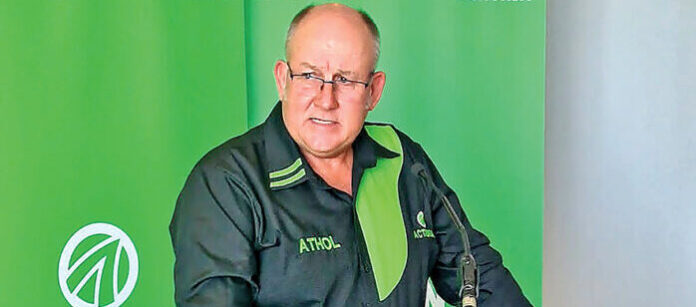The ANC should not give South Africans the impression that the 0.5% value-added tax (VAT) increase has been approved, according to Athol Trollip, the leader of the ActionSA parliamentary caucus.
This comes after the ANC declared its commitment to defending working-class families and the impoverished and praised the adoption of a people-centred fiscal framework.
“Which is why we advocate for expanding VAT exemptions on essential goods and ensuring that austerity measures never fall disproportionately on those least able to bear them,” said ANC spokesperson Mahlengi Bhengu-Motsiri.
Trollip clarified that the report’s approval on Wednesday was mainly about determining the government’s spending budget.
He emphasised that this was only the beginning of a more extensive process that would involve months of deliberation and the creation of tax and spending legislation.
According to him, government spending is currently out of control, and widespread waste is endangering the country’s finances.
He criticised the use of political games and statements, arguing that they would not resolve the crisis but rather make it worse.
Revenue-generating alternative
Trollip cautioned that South Africa may soon have to deal with a damaged economy and an unfinished budget if responsible action is not taken.
“The adopted report on the fiscal framework includes several key points, foremost among them ActionSA’s recommendation, which is the only practical tool enabling parliament and government to identify alternatives to cover the shortfall created by scrapping the 0.5 percentage point VAT increase and addressing income tax bracket creep,” said Trollip.
According to him, ActionSA suggested changes rather than a complete overhaul of the fiscal framework, which would have required Minister of Finance Enoch Godongwana to redo the entire budget and create delays.
Trollip claims that by taking this approach, instability is avoided and the VAT increase is not set to go into effect on May 1.
Additionally, he asserted that certain parties who opposed the proposal hoped that postponements would cause the VAT increase to go into effect automatically.
He said ActionSA’s approach allows enough time to find alternative revenue sources and officially delay the VAT increase without restarting the entire budget process.
“While the ruling coalition failed to agree on a solution, ActionSA is taking the lead in protecting South Africans from unfair tax hikes.
“We are not just rejecting VAT and tax hikes; we are providing a practical, revenue-generating alternative.”
Revenue recovery programme
He claimed that ActionSA had presented a number of options in the proposal to increase revenue without raising taxes.
One of these is the revenue recovery programme of the South African Revenue Service (SARS), which, with R2-billion in funding annually, has the potential to recover between R20-billion and R50-billion.
In order to improve SARS’s capacity to collect taxes, he said an additional R1.5-billion has been set aside for the 2025–2026 fiscal year, for a total of R4-billion over two years.
“SARS’s own figures prove the effectiveness of targeted fiscal interventions: As per SARS’ press statement yesterday [Wednesday], net revenue collection for the year was R8.8-billion higher than the revised estimate and R114-billion more than the previous year.
“This underscores the fact that a well-funded SARS can generate additional revenue without burdening taxpayers,” said Trollip.



